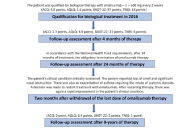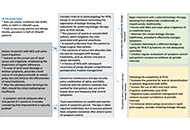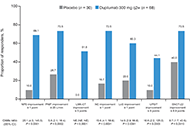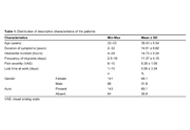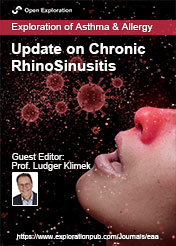
Update on Chronic Rhinosinusitis
Guest Editor
Prof. Ludger Klimek E-Mail
Head and Chairman Center for Rhinology and Allergology, Wiesbaden, Germany
Research Keywords: Allergic rhinitis, allergen immunotherapy, ASA intolerance / N-ERD syndrome, chronic rhinosinusitis / CRSwNP, epithelial immunology
About the Special lssue
Chronic rhinosinusitis (CRS) is a common chronic disease in Europe, the Americas, and Asia, with the prevalence of 7% to 16%. CRSwNP is a subtype of CRS that accounts for the majority of health care costs with a prevalence of approximately 4% in the adult population and is associated with significantly impaired health-related quality of life. In CRSwNP, recurrence is common despite adequate drug and surgical treatment.
Drug treatment of CRSwNP targets the underlying inflammation and includes topical intranasal corticosteroids, short-term systemic corticosteroids (SCS), and others such as leucotrien-antagonists, nasal lavage, and antibiotics. Sinus surgery is an option for patients whose symptoms persist despite appropriate drug treatment, but patients with severe CRSwNP have a recurrence rate of ca. 40% within three years, even when multimodal treatment methods have been used, and of up to 80% within 12 years. Therefore, additional treatment options are needed, and modern biologicals like Dupilumab, Mepolizumab, and Omalizumab are authorized for severe CRSwNP. Biologic therapy targets type 2 inflammation, which is found in approximately 80% of patients with CRSwNP in Europe and is associated more often with comorbid asthma. Aspirin-exacerbated airway disease (AERD or N-ERD) patients are more likely to require sinus surgery, have high corticosteroid use, and are more likely to experience long-term recurrence. Advances in the understanding of the immunologic processes involved in type 1, 2, and 3-inflammation will lead to new opportunities for disease control, and monoclonal antibodies targeting other immunological players will soon become available.
International recommendations exist for the indication and on-label therapy of CRSwNP with biologics and will be further developed for monitoring the course and efficacy of therapy as well as for reviewing the duration and possible termination of therapy, considering pharmacoeconomic aspects, taking into account the high cost of biologics.
Keywords: Chronic rhinosinusitis, biologic therapy, biologicals, asthma
Published Articles

